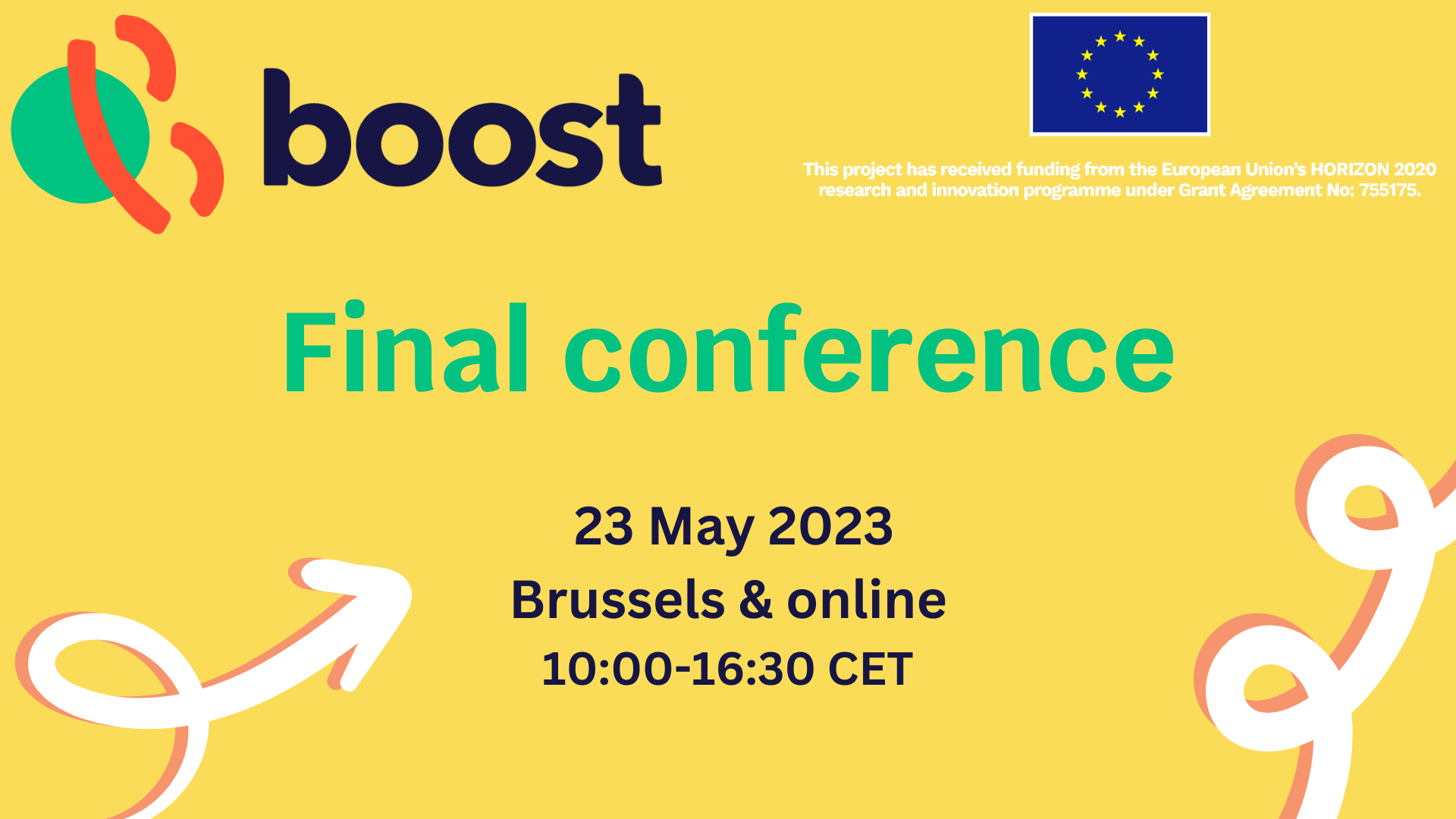
- This event has passed.
BOOST Project Final Conference
23 May 2023 @ 10:00 am - 4:30 pm
Free
School-based Social and Emotional Learning (SEL) programs have proven effective in increasing social well-being and academic achievement in children. At the beginning of 2018, the BOOST project set out to develop, implement, and test a new, systematic SEL-based population approach to promote mental health and well-being in primary school children. Now, it is time to close off and make up the balance; how did we do and what did we learn?
The 2022 Health at a Glance report showed almost half of young Europeans report unmet needs for mental health care, and the number of young people reporting depression symptoms in several EU countries more than doubled during the COVID-19 pandemic. Mitigating these effects requires a shift of prioritisation towards prevention: to tackle behavioural and environmental risk factors and have more ambitious actions on mental health promotion. Insights from the BOOST project will demonstrate how integrating SEL programs into primary school curricula can play a significant role in this.
Unprecedented circumstances caused by the COVID-19 pandemic, such as prolonged school closures and social restrictions, challenged the original design of the BOOST project and complicated the implementation of the pilot phase. At the same time, these conditions gave rise to unique opportunities for studying the effects of COVID-19 measures on primary school children.
At the BOOST final conference on 23 May 2023 from 10:00-16:30 in Brussels, the consortium will share experiences from the past four years and present the project’s main outcomes from three different European countries: Norway, Poland, and Spain. In particular, we will focus on two special sessions looking at the BOOST approach developed during the project and the COVID-19 impact on addressing mental health in primary schools. Finally, we will look at ‘what’s next’, and discuss the key takeaways from the project, in particular in view of the current EU strategic initiatives on mental health. Register now to join us!


